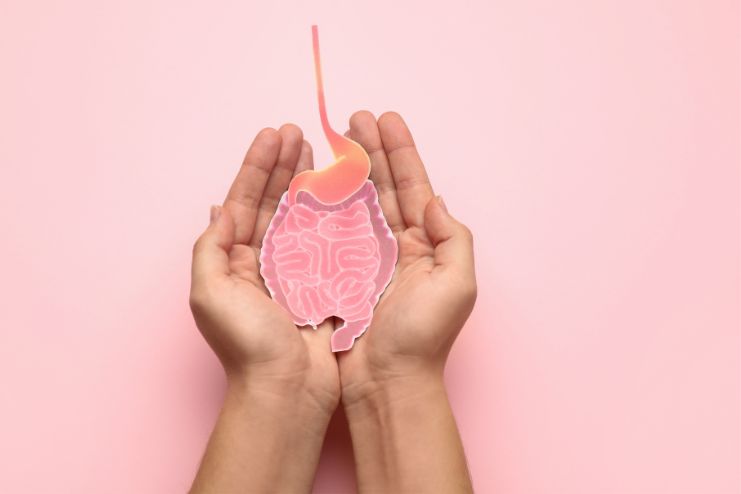Affiliate Disclaimer
Some links in this article are affiliate links. We may earn a small commission if you make a purchase through these links, at no extra cost to you. We only recommend products we find useful to our readersHave you ever considered why we usually steer clear of bitter foods? Since bitterness was formerly a warning for harmful chemicals, our taste receptors automatically reject it. Many bitter foods, meanwhile, are not only safe but also quite beneficial for our health.
Leafy greens, coffee, and dark chocolate are all bitter foods that are full of nutrients, antioxidants, and plant chemicals that help digestion, improve gut health, and keep blood sugar levels steady. Also, they make the body make more bile, which helps break down fats better.
For centuries, traditional medicine systems like Ayurveda and Chinese medicine have recognized the healing properties of bitter foods. These elements are thought to cleanse the body, improve digestion, and potentially elevate metabolism.
While these foods may have a bold flavor, they bring a distinctive harmony to our meals and can be transformed into a delightful experience with the proper cooking techniques.
Discover the vital role bitter foods play in promoting a healthy lifestyle and learn how to seamlessly integrate them into your meals while keeping your palate pleased. Prepare to harness the strength of bitterness for improved well-being.
READ MORE: 18 Food Swaps for Weight Loss
The Science Behind Bitter Foods

Though they are not everyone’s preference, bitter foods are really vital for our health. Although bitterness usually points to a plant’s inherent defense mechanism, many bitter chemicals have amazing effects on digestion, metabolism, and general health.
These foods enhance metabolism, helping to break down fat and increase the absorption of nutrients. They also assist in appetite management, therefore prolonging feelings of fullness and lessening cravings.
Knowing the science underlying bitter foods will enable us to value them and include them often in our diet.
Why Do Some Foods Taste Bitter?
Have you ever found it interesting why some foods taste bitter? All of it boils down to naturally occurring plant molecules. Alkaloids, flavonoids, and glucosinolates—which protect a plant from predators—are the sources of bitter tastes.
Many of these substances provide health advantages, even if some of them can be dangerous in large quantities.
- Alkaloids: Coffee and tea contain alkaloids, which have medicinal properties and can improve mental clarity.
- Flavonoids: Found in dark chocolate and citrus fruits, flavonoids act as antioxidants, reducing inflammation and protecting cells.
- Glucosinolates: Found in broccoli and kale, glucosinolates aid in detoxification and may lessen the risk of chronic illnesses.
How Our Bodies React to Bitter Foods
When we eat bitter foods, our body responds in ways that enhance digestion and metabolism rather than only noting their taste.
- Bitter receptors in taste buds: Bitter sensors on our taste buds, called TAS2Rs, pick up on bitterness and send a message to the brain to change how we taste. Different people handle bitterness better than others, as genes affect the count of these receptors.
- Activation of digestive enzymes: Eating something bitter makes your stomach acid and saliva flow, which helps break down food more efficiently. This improves the health of the intestines and the intake of nutrients.
- Metabolic accelerators: Bitter foods can help you control your weight because they can lower your blood sugar and speed up your metabolism.
- Appetite Control: Studies show that sour foods may help lower your sugar cravings and make you feel fuller, which means you won’t want to eat too much.
READ NEXT: Top 19 Super Foods for Diabetic Person
Health Benefits of Eating Bitter Foods

Bitter foods are full of nutrients that are good for your health, even if they aren’t always the most attractive. These foods are good for you in the long run because they help your stomach and keep your heart healthy.
Let’s talk about the health benefits of bitter foods and how they make the body better.
Improved Digestion & Gut Health
It’s clear that bitter foods are good for your stomach. When we eat bitter foods, our taste sensors tell our brains to make more digestive juices, like stomach acid, saliva, and bile. This helps break down food quickly so that nutrients can be absorbed better.
Bitter foods are also very important for gut health. These foods help good bacteria grow in the gut and stop bad bacteria from spreading. If your gut microbiome is balanced, your digestion will be better, you will have less gas, and your digestive system will work better generally. For gut health, leafy greens, dandelion root, and bitter melon are all great picks.
Blood Sugar Regulation & Metabolism
Bitter foods help keep blood sugar levels in check by making insulin work better. Bitter compounds help the body handle glucose, which makes them helpful for people who want to avoid or control diabetes.
Bitter foods also naturally make people less hungry for sugar, which can help them eat less artificial sugar and keep their diets balanced. Because they control hunger and keep you from eating too much, they are a great addition to any meal plan that aims to speed up your metabolism.
Liver Detoxification & Overall Organ Health
One of the best things about sour foods is that they help clean out the liver. These foods help the liver get rid of toxins and make it better at getting rid of waste.
Artichokes, turmeric, and milk thistle are some of the foods that help the liver’s detox routes work well. A healthy liver is important for your overall health and for keeping your body’s natural cleansing systems running smoothly.
Better Nutrient Absorption
Did you know an interesting fact about bitter foods? They help your body absorb nutrients better. They make it easier for the body to receive minerals like magnesium, calcium, and iron, which are needed for strong bones, energy production, and cell function.
Appetite Control & Weight Management
Bitter foods help you control your hunger by making you feel full and sluggish down digestion. This keeps you from eating too much and encourages careful eating, which makes them a great addition to any plan to lose weight.
Heart Health & Anti-Inflammatory Effects
Bitter foods have strong flavonoids that help with an anti-inflammatory diet. These chemicals help lower the chance of heart disease, lower inflammation, and improve blood flow.
What Experts Say
Erika Jacobson, a nutritionist who specializes in gut health, says that bitter foods are important because they help the body make digestive juices like bile, saliva, stomach acid, and pancreatic enzymes. These juices are needed to break down food properly.
When we eat sour foods, our taste buds react, which makes digestion better from the very first bite. Pancreatic enzymes and stomach juice make sure that proteins and carbs are broken down properly. More bile, on the other hand, helps break down and absorb fats.
Bitters are an important part of a healthy diet because they help the body absorb nutrients better and avoid problems like gas, bloating, and a slow metabolism.
READ MORE: 10 Ways to Revive Your Taste Buds
Common Bitter Foods & Their Unique Benefits

Though they might not always be the most appealing, bitter foods have great health benefits. They aid in detoxifying, controlling blood sugar, enhancing digestion, and even assisting with weight loss.
These are some of the most often consumed bitter foods, and they are the reasons you should think about including them in your diet.
1. Leafy Greens (Kale, Dandelion Greens, Arugula, Endive)
Fiber, vitamins, and cleansing agents abound in bitter greens, including kale, arugula, and dandelion greens. They boost liver function, assist the body to eliminate toxins, and aid in digestion. Excellent for heart health and lowering inflammation, these greens also contain vitamin K, folate, and antioxidants.
2. Cruciferous Vegetables (Brussels Sprouts, Broccoli, Cabbage)
Sulforaphane, a potent chemical well-known for its cancer-preventing qualities, is found in many vegetables. They also help digestion, support liver detoxification, and supply vital minerals including folate, fiber, and vitamin C.
3. Bitter Melon
The regulation of blood sugar is well-known in bitter melon. It comprises molecules that resemble insulin, so enabling a natural reduction in blood glucose levels. This helps those with diabetes or those trying to raise insulin sensitivity. Also excellent for weight control is bitter melon since it promotes metabolism and helps reduce cravings.
4. Dark Chocolate (80%+ Cacao)
Dark chocolate is more than just a sweet treat; it’s loaded with flavonoids and antioxidants that help the heart and brain. By increasing serotonin levels, good dark chocolate can strengthen cognitive ability, boost circulation, and even aid in lowering stress.
5. Citrus Peels & Grapefruit
Rich in flavonoids and metabolism-enhancing molecules are citrus peels and grapefruit. These stimulate liver cleansing, help to lower inflammation, and improve digestion. Grapefruit, in particular, helps control weight by guiding fat metabolism and blood sugar regulation.
6. Coffee & Green Tea
Polyphenols and plant chemicals abound in both green tea and coffee, which have several health advantages. While green tea increases metabolism and helps control weight, coffee sharpens mental clarity. Additionally, both drinks are helpful for digestion and intestinal health.
7. Herbs & Spices (Turmeric, Fenugreek, Dandelion Root, Chicory Root)
Often used to help digestion and liver function are bitter herbs and spices including turmeric, fenugreek, dandelion root, and chicory root. While fenugreek helps control blood sugar, turmeric boasts curcumin, a potent anti-inflammatory agent. Excellent additions to any balanced diet, dandelion, and chicory roots assist intestinal health and liver detoxification.
READ NEXT: 12 Lesser-Known Benefits of Tulsi Tea
How to Incorporate Bitter Foods Into Your Diet

Bitter foods are rich in nutrients that help digestion, nutrition absorption, gut health, and detoxification. For some, though, their strong flavor might be problematic. The good news is that your meals might include several strategies to balance and appreciate sour tastes.
Here’s how you might include them routinely into your diet.
Balancing Bitter Flavors in Meals
- Pair with sweet, salty, or umami flavors – A more balanced and delicious taste results from combining bitter meals with naturally sweet ingredients (such as honey, fruits, or roasted vegetables), salty elements (such as cheese or nuts), or umami-rich foods (like mushrooms and miso).
- Cut bitterness using cooking methods – Blanching, sautéing, and roasting can help bitter greens and vegetables soften their potency. Roasting Brussels sprouts, for instance, accentuates their inherent sweetness, hence increasing their appeal.
- Dress it up – The taste of bitter greens can be improved, and their appeal increased by a squeeze of lemon juice, a drizzle of olive oil, or a tasty dressing.
Easy Ways to Add Bitter Foods Daily
- Blend bitter greens into smoothies – Adding a handful of kale, arugula, or dandelion greens to a fruit smoothie is a simple approach to receiving the benefits of bitter foods without a strong taste.
- Drink herbal bitters or teas – Before meals, sip herbal bitters or teas; they will assist in boosting nutrient absorption and increase digestion. Dandelion tea or green tea.
- Use bitter spices and fermented foods – Along with fermented foods like sauerkraut and kimchi, herbs such as turmeric, fenugreek, and mustard seeds offer bitter ingredients while improving gut health.
- Sprinkle cacao nibs or dark chocolate – Add unsweetened cacao nibs to yogurt, porridge, or desserts for a great way to include antioxidant-rich bitterness from dark chocolate.
Bitter Food Recipes to Try
- Bitter Greens Salad with Citrus Dressing – Toss arugula, endive, and radicchio with a citrusy vinaigrette and almonds for a cool and balanced meal.
- Stir-Fried Brussels Sprouts with Balsamic Glaze – Sauté Brussels sprouts with garlic and finish with a bit of balsamic glaze to accentuate sweetness while keeping the health advantages.
- Dark Chocolate and Nut Energy Bites – For a healthy snack with a little touch of bitterness, toss dark chocolate (80%+ cocoa), nuts, dates, and seeds into energy pieces.
READ MORE: Usage and Benefits of Olive Leaves
Are Bitter Foods Right for Everyone?

There are many health benefits to eating bitter foods, such as helping digestion and liver cleansing. But they might not work for everyone.
Some people can handle sour tastes better than others, and others may need to be careful because of health issues.
Take a look at this information before you start eating more sour foods.
Who Should Be Cautious?
- People who have stomach problems or acid reflux – Bitter foods may help digestion, but they may also make your stomach more acidic. People who have acid reflux, gastritis, or ulcers should watch how much they eat and talk to their doctor before eating too many sour foods.
- Individuals with sensory sensitivities – Genetic differences make some people naturally perceive bitterness more strongly. If bitter foods are too strong for you, you may be more sensitive to bitter chemicals. In this case, slowly adding bitter tastes can help.
Can You Train Your Taste Buds to Like Bitter Foods?
- Gradual exposure increases tolerance – Over time, you can train your taste buds to like bitter foods, just like you can learn to like coffee or dark chocolate. Start by adding a little bitter greens, herbs, or spices to foods you already eat. You can help your tongue get used to them by slowly adding more of them to your diet.
- The science behind changing taste preferences – Eating bitter foods over and over again can change how our taste sensors react. The brain connects these tastes with their health benefits over time, which makes them more enjoyable. Taste adaptation is the process by which foods that seem too bitter at first can become more enjoyable over time.
READ NEXT: How to Boost Your Digestion
Conclusion

Although many people’s first pick may not be bitter foods, their health advantages make them worthwhile to include in your diet. These nutrient-dense meals assist digestion, intestinal health, liver cleansing, and nutrition absorption, as well as aid in controlling hunger and managing weight.
Natural components in bitter greens, cruciferous vegetables, herbs, and teas boost digestive enzymes, control blood sugar levels, and offer anti-inflammatory properties supporting general well-being.
If you’re not familiar with bitter foods, start small—combine them with complementary flavors, try several cooking techniques, and come up with original ideas for including them in your meals. Your taste receptors might change with time, which increases the enjoyment of these flavors.
Accepting the robust and sophisticated flavor of bitter foods not only broadens your diet but also provides your body with vital nutrients for improved health. Why then not test your taste and learn the advantages of bitter foods? Start adding them right now to see their natural ability to increase metabolism, digestion, and energy.
References
- https://www.taste.com.au/healthy/articles/why-bitter-foods-better-you/ouihohj0
- https://www.nbcnews.com/better/health/why-you-should-be-eating-more-bitter-foods-ncna831091
- https://pmc.ncbi.nlm.nih.gov/articles/PMC9002472/
- https://pmc.ncbi.nlm.nih.gov/articles/PMC8072924/
- https://learn.genetics.utah.edu/content/basics/ptc/
- https://www.psu.edu/news/research/story/research-shows-taste-perception-bitter-foods-depends-genetics
- https://news.unchealthcare.org/2024/04/researchers-discover-how-we-perceive-bitter-taste/
- https://www.nbcnews.com/better/health/why-you-should-be-eating-more-bitter-foods-ncna831091
- https://www.webmd.com/digestive-disorders/what-to-know-about-digestive-bitters
- https://www.taste.com.au/healthy/articles/why-bitter-foods-better-you/ouihohj0
- https://www.nationalgeographic.com/science/article/bitter-vegetables-breeding-genetics-health
- https://draxe.com/nutrition/bitter-foods/
- https://www.goodhousekeeping.com/health/diet-nutrition/a38982936/bitter-foods/
- https://www.traywellness.com/blog/16-bitter-foods-for-better-digestion
- https://www.naturallywith.com/bitter-food-benefits/
- https://desireerd.com/bitter-foods-the-key-to-better-health/
- https://foodrevolution.org/blog/bitter-is-better-why-bitter-foods-can-be-good-for-your-health/
- https://wilddispensary.co.nz/blogs/news/bitter-foods
- https://www.css.ch/en/private-customers/my-health/nutrition/nutrition-knowledge/bitter-substances.html
In this Article




















